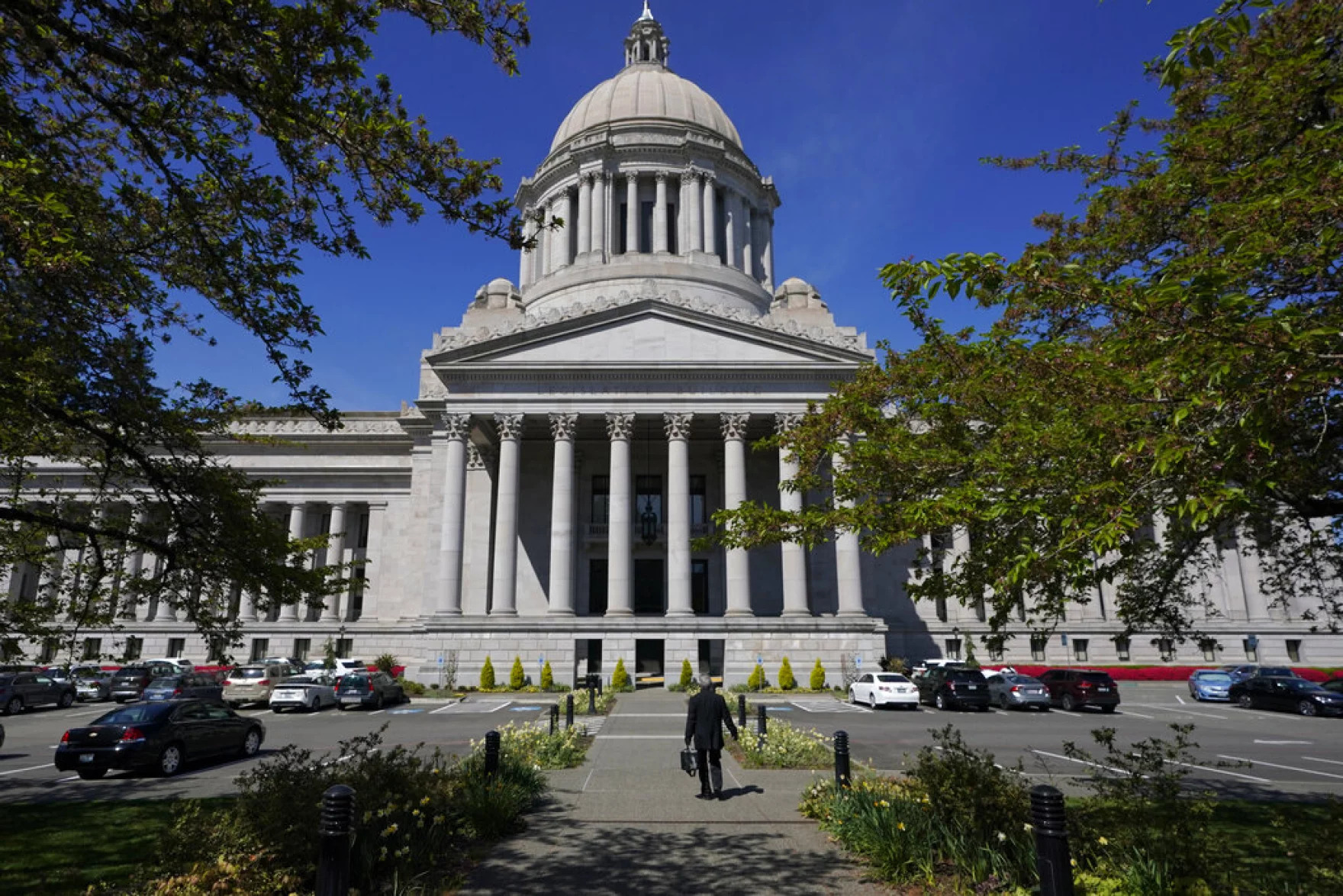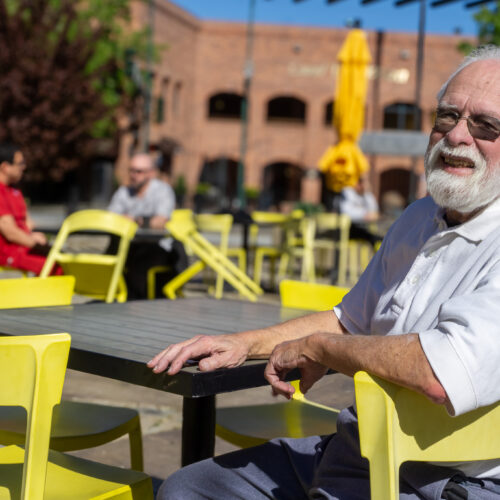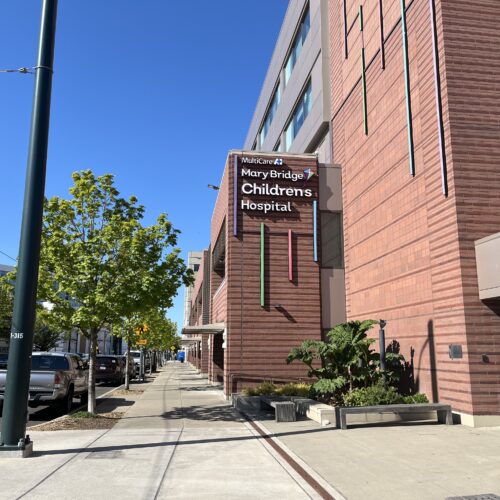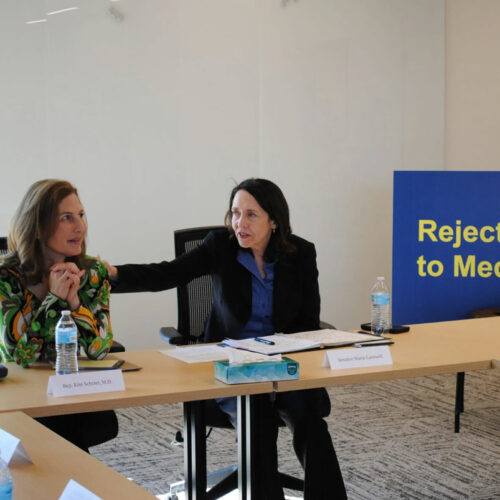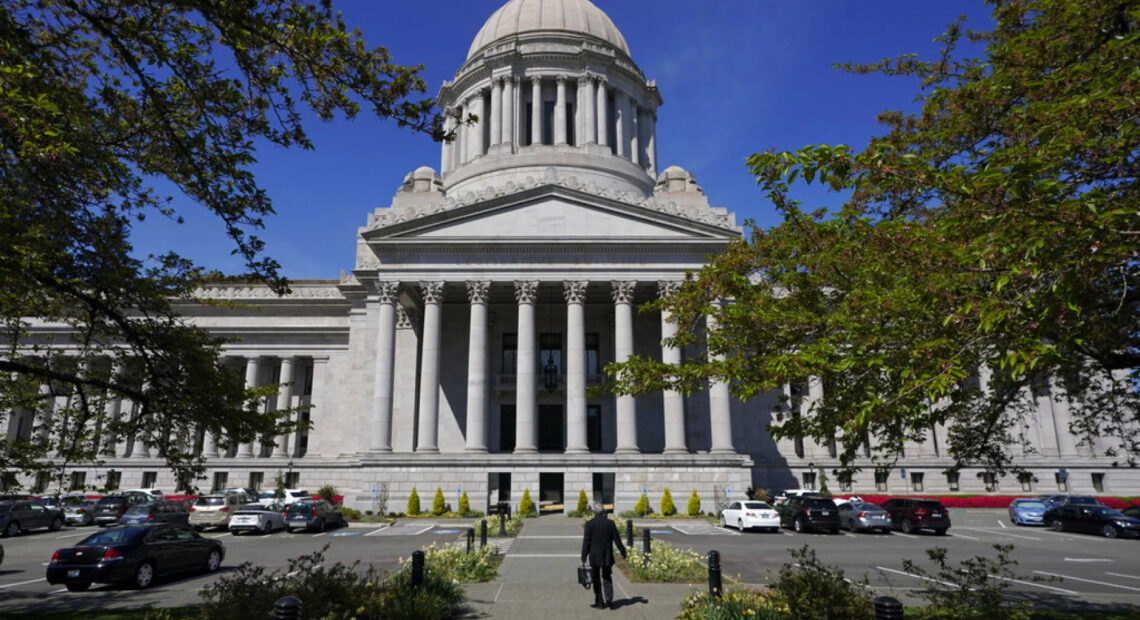
Two bills could make it easier for people in Washington state custody to vote, politically organize
Listen
(Runtime 1:04)
Read
While people who are incarcerated in jails can vote in Washington, many say it’s not that easy. Now, two bills in the state Legislature aim to increase voting access and civic engagement for people in jails, state hospitals and youth facilities.
For people to have better connections to society once they leave state custody, it’s important to stay civically engaged. That was the message from many current and formerly incarcerated people during public hearings for Washington’s House State Government and Tribal Relations Committee.
“We’ve been watching the exact same failure happen over and over again. People in jails and hospitals, if we say that their vote doesn’t matter when they have that right, then in reality we’re not a democracy,” said Jacob Ivan Schmitt, with Just Us Solutions, an advocacy group for people affected by the criminal legal system.
House Bill 1147 would make it easier for people who are in prisons or state hospitals to form political organizations, work with community advocacy groups and engage with campaigns. House Bill 1146 would make it easier to register and vote while in custody.
“If we lock out whole segments of a society from participating in critical parts of publics, we set in motion generational cycles of political disadvantage, and these things are drivers of violence and poverty,” said Derrick Jones, who is incarcerated at the Washington Corrections Center. Jones spoke via Zoom.
Washington’s Secretary of State Steve Hobbs opposed the civic engagement bill, House Bill 1147, saying his office already has similar plans in place.
“We’re already making that connection. Here’s the bad news: (it’s) not included in the governor’s budget,” Hobbs said.
Other state agencies, including the departments of Corrections and Social and Health Services, signed in “other” on the bill, although representatives said they plan to work out their concerns with bill sponsor Rep. Darya Farivar, D-Seattle.
The Secretary of State’s office requested the voting access bill, House Bill 1146, sponsored by Rep. Tarra Simmons, D-Bremerton.
“ If you’re in jail, (you) have every right to vote,” Hobbs said. “And unfortunately, we have a hodgepodge of systems in the various jails because they’re run by the counties. This is a systematic approach to dealing with this issue.”
In addition, the voting access bill could save counties money by avoiding lawsuits, he said. Others testified that the bill could be hard on smaller, cash-strapped, short-staffed counties.
In 2022, a Washington law allowed people convicted of felonies to register to vote once they leave custody. However, advocates have argued that voting is not always top of mind for people post-incarceration, which is why they said education is important.
While people in state custody in Washington have a right to vote, they don’t always have access, said Christopher Poulos, executive director at the Center for Justice and Human Dignity.
Poulos was formerly incarcerated in Washington and registered to vote in Maine. He said Maine mailed him a ballot, which he said helped him feel connected to his community.
“ I went on to go to college, go to law school, become an active first responder here in Washington state. Part of the reason I was able to do all that is because of the mental shift that happened inside me by still feeling part of my community, even though I was separated from it,” he said.

